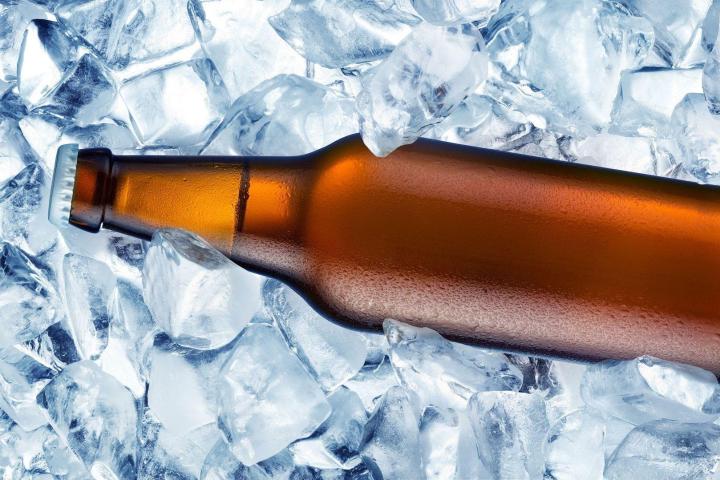
Back in the early 1800s, German beer brewers made a revolutionary discovery. While experimenting with different styles of fermentation, they figured out that by manipulating the yeast’s environment, they could affect its behavior. Slow-acting strains of yeast stored at low temperatures tended to process sugars differently, and produced beer that was clearer than any kind before it. This is how the clear German ‘lager’ (which literally means, ‘storage’) beer we know today was created.
Without refrigeration, brewers could only make the new lager beers during the coldest parts of the year. But, as we all know, lagers are perfect warm-weather fare; so over time the demand for lagers to be brewed year-round slowly began to rise. Suddenly, brewers needed a way to keep their beer cold all the time, so many of them turned to the scientific community for help. Believe it or not, it was largely this demand for beer production that fueled the rapid advancement of refrigeration technology in the mid 19th Century. In essence, the fridge was invented to keep beer cold.

The secret behind this technology isn’t really technology at all – it’s arguably just a clever technique. Current rapid-chilling machines typically work by circulating near-freezing water around a stationary or slowly-spinning beverage container. When cold water meets warm bottle, energy transfers out of the bottle and the temperature comes down. This is highly effective, but V-Tex was able to improve it. How? Basically just by spinning the bottle really fast in an upright position. By rotating the bottle extremely fast, researchers discovered they could circulate the beer in the bottle and create what’s called a Rankine vortex. This circulation of liquid inside the bottle allows for faster heat transfer, but doesn’t agitate the beer so much that it starts to fizz and bubble. Ingenious, right?
The technology is still in the early stages of development, but V-Tex has big plans for it, and in more than just consumer applications, too. Their idea is that stores and businesses could use these machines to cut down on energy consumption by storing drinks at room temperature and then cooling them rapidly after people purchase them, rather than refrigerating all of them constantly like we currently do.
So basically if this gizmo catches on it’ll do three awesome things for the world: cut down operating costs for businesses, reduce energy consumption, and cool your beer for you on a hot summer day. Do I smell a Nobel Prize?



